Kopierar in en text från en bok jag läst, How to change things when change is hard som slog mig ganska så hårt, finns att googla fram som pdf.
For most of the twentieth century, oil explorers had trusted their
gut, which worked out well, because their gut was pretty smart
and oil reserves were largely untapped. In the 1 960s, Jim
Vanderby, one of the great BP explorers, went to Egypt. The first
four or five holes he drilled there were dry. His superiors at BP
sent him a telegram and told him to stop trying. He didn't get the
telegram, or so he claimed. Regardless, he drilled again, and on
his next try in the Gulf of Suez, he tapped into the world's first
multibillion-barrel oil field.
At that time, BP was considered by many to be
the world's most effective exploration company. Even so, BP's lead
·ers believed it was spending far too much on exploration. They
committed to slash exploration costs from $5 per barrel to $1.
To reduce costs so drastically, BP needed to minimize the
number of "dry holes" it drilled. The historical success rate for
drilling a new well was roughly 1 out of 8. BP's rate was much
better: l out of 5. To cut exploration costs from $5 to $1 per barrel,
though, it would have to go from "good" performance to unprecedented
performance.
Researchers at BP began to investigate past explorations.
For instance,
when the explorers gave the well a 20 to 70 percent probability
of hitting, their predictions were pretty accurate. But when
the explorers predicted a greater than 75 percent chance of success,
the wells hit nearly all the time. Also, wells that had been
given a 10 percent chance of success actually had more like a 1
percent chance.
More subtly, the use of expected value made people think
about drilling as a numbers game.
As Jim Farnsworth, a top leader
in BP's exploration unit, said, "Explorers think in terms of risk
probabilities. People get so caught up in the numbers that they
think, 'Well, if we drill ten of these l -in-lO wells, we'll hit at least
one of them and we'll all make a lot of money. But when you do
the analysis, you realize that something that is 1 in 10 never
works, so it's a false sense of statistical darity."
The odds-playing gave everyone a false sense of comfort. Hey,
if we drill some dry holes, one of the other holes will hit and make up
for it. Explorers were like venture capitalists, hoping for an eBay
or a Google to bail them out of an otherwise lousy portfolio.
If you were an executive at BP, hoping to cut your exploration
costs by 80 percent, your first mission would be to remove this
false sense of comfort. T
Ian Vann, BP's head of exploration at the time, figured out a
way to eliminate the fudge room. He announced his new vision:
"No dry holes."
"We wanted to get away from the language of
probability, from people hiding behind a notion that if a l-in-5
well didn't work, 'I told you it was 1 in 5 so I was right.' 'No dry
holes' was an attempt to make people go to the absolute extreme
limit. to make sure they'd looked at every piece of data and done
the right analysis."
The B&W goal worked exactly as the management team had
intended. When BP left nowhere for people to hide, its people
stopped trying to hide. They tightened up their analyses, and they
made fewer "play-the-odds" decisions. They got serious about using
every available scrap of data in their decisions. And they toughened
up their resistance to governmental and partner pressure.
By 2000, BP's hit rate was an industry-leading 2 in 3. That's
triple the success rate of 1 989. BP was still hitting dry holes, but
the goal had stirred improvements that many had considered impossible.
BP transformed itself when it eliminated its own wiggle
room. When we drill a hole, it better not be dry.
Just no dry holes och inga play the odds borrningar utan fokusera på de borrningar (spel) som verkligen är bra och kan uppbackas med mer än en gut feeling. Så läs och just att dra ner på kostnaderna i deras fall är samma för oss som spelar, ju färre spel desto mindre kostnader. Det här en tanke och filosofi som hjälpt mig jättemycket, no dry holes och inga play the odds spel utan tighta väl uppbackade spel endast för att dra ner kostnaderna och på så vis öka avkastningen.
Följande användare gav Sharp$ för den här posten:
|




